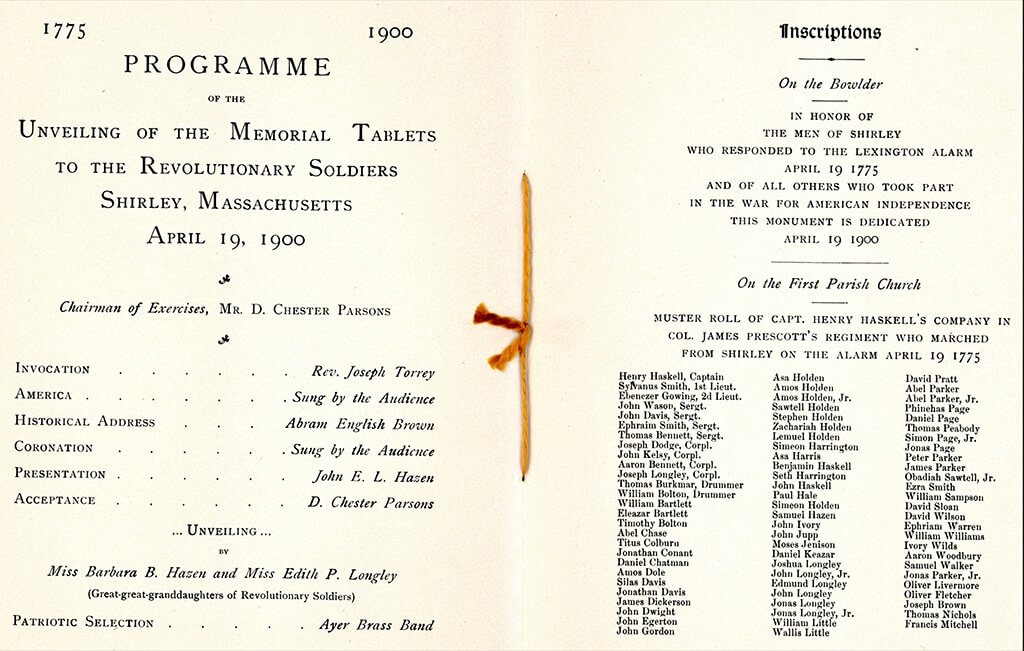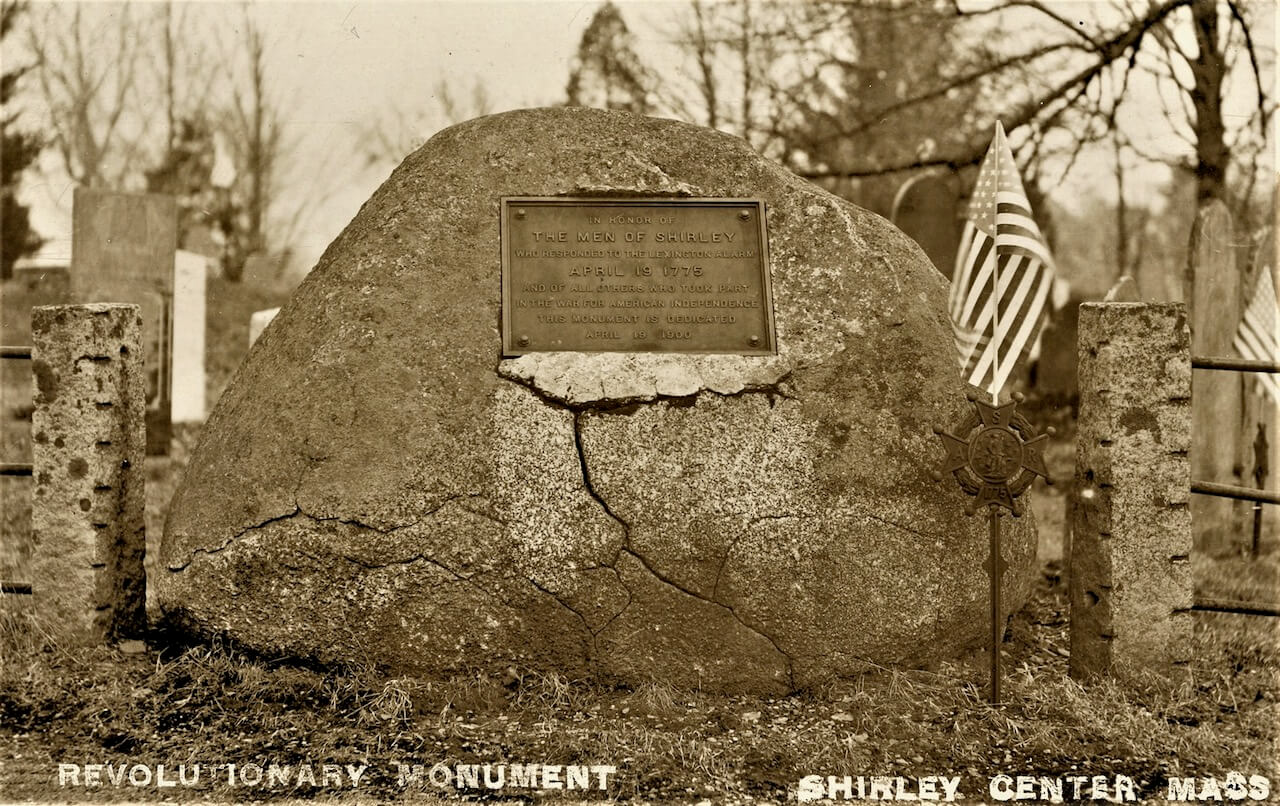
IN HONOR OF
THE MEN OF SHIRLEY
WHO RESPONDED TO THE LEXINGTON ALARM
APRIL 19 1775
AND OF ALL OTHERS WHO TOOK PART
IN THE WAR FOR AMERICAN INDEPENDENCE
THIS MONUMENT IS DEDICATED
APRIL 19, 1900

Image courtesy of the Shirley Historical Society

IN HONOR OF
THE MEN OF SHIRLEY
WHO RESPONDED TO THE LEXINGTON ALARM
APRIL 19 1775
AND OF ALL OTHERS WHO TOOK PART
IN THE WAR FOR AMERICAN INDEPENDENCE
THIS MONUMENT IS DEDICATED
APRIL 19, 1900
Image courtesy of the Shirley Historical Society
Shirley’s American Revolution Memorial sits prominently in front of the Shirley Center Cemetery, recognizing the local Patriots who fought against the British at Lexington and Concord on April 19, 1775.
Dedicated on April 19, 1900, at 2:00 PM, the memorial was described as a large granite bolder estimated to weigh ten tons or more, taken from the old homestead of Dr. Benjamin Hartwell, a surgeon in the Revolutionary army who served three enlistments and was the last Revolutionary War pensioner in Shirley. It required several men and two horses four days to move the boulder to its present location.
A bronze tablet set within the boulder is inscribed:
IN HONOR OF
THE MEN OF SHIRLEY
WHO RESPONDED TO THE LEXINGTON ALARM
APRIL 19 1775
AND OF ALL OTHERS WHO TOOK PART
IN THE WAR FOR AMERICAN INDEPENDENCE
THIS MONUMENT IS DEDICATED
APRIL 19, 1900
A second tablet inscribed with the muster roll from April 19th was sited by the door to the Shirley Meeting House and dedicated the same day.
The unveiling of the monument and tablets took place at the Shirley Meeting House where on June 26, 1776 residents voted at town meeting to support independence from Great Britain. For the ceremony, the church was decorated with flags and flowers and guests were escorted to their seats by four “young lady” ushers to the accompaniment of organ music. Following introductory remarks, a blessing and the singing of America, historian Abram English Brown of Bedford delivered an historical address.
In his address, Brown placed the events of April 19, 1775 within context detailing the events that led to that day. He told how the residents of Shirley had sent loads of grain and farm produce by ox to the "starving poor" of Boston during the British embargo of 1775, as well as the historic sermons preached from the Hancock bible, a gift to the community from Lydia Hancock, widow of Thomas Hancock and aunt of John Hancock. Coronation, a tune composed by Oliver Holden of Shirley, concluded the indoor exercises.

